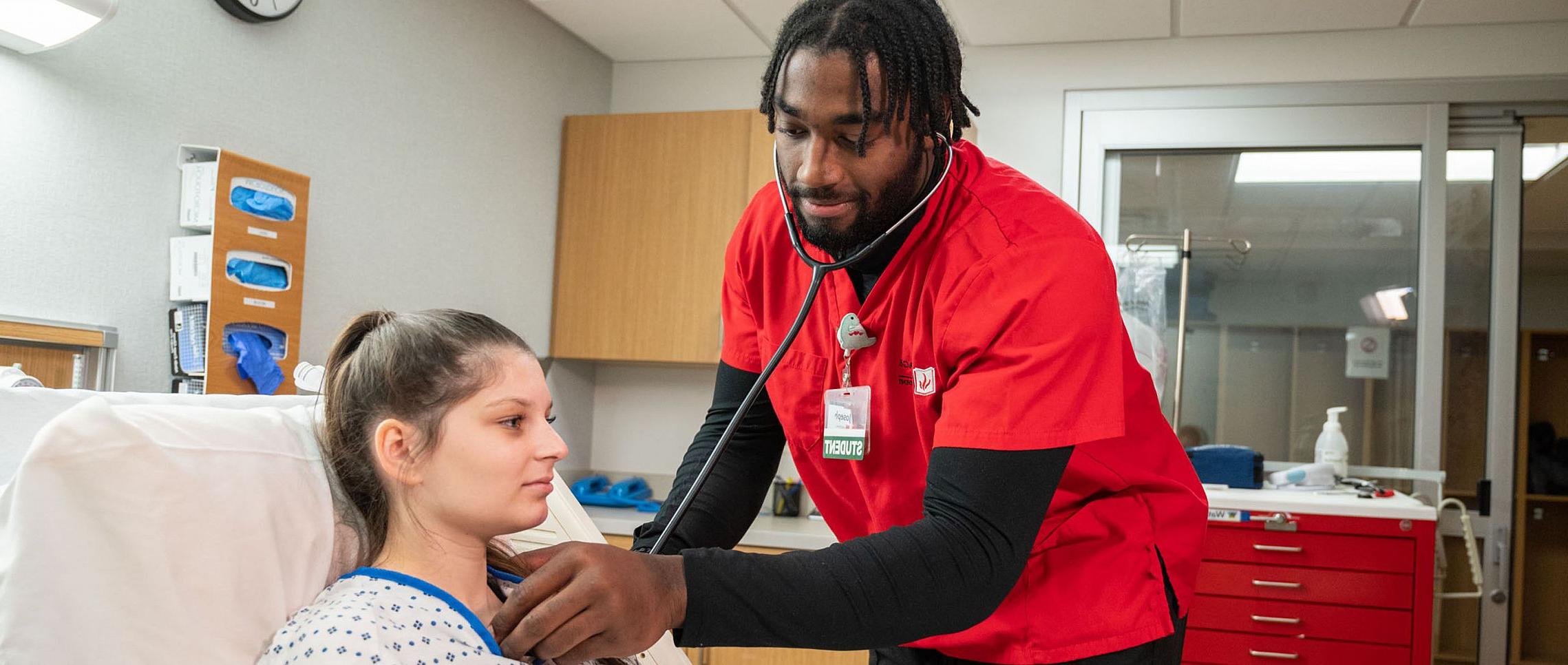Accreditation, Philosophy, & Mission
Accreditation

The College has been accredited continuously since 1916 by the Higher Learning Commission, 230 South LaSalle St., Suite 7-500, Chicago, IL 60604, 1-800-621-7440.
In addition, the Carthage College Nursing Program has final approval from the Wisconsin Board of Nursing.
Philosophy
Nursing is a scientific discipline and a practice profession. The practice of professional nursing is the application of its science. In concert with the American Nurses’ Association, the faculty espouse the belief that nursing is a human science concerned with the protection, promotion, optimization, and restoration of human health and abilities; the prevention of illness and injury, alleviation of suffering through the diagnosis and treatment of human response; and advocacy in the care of individuals, families, communities, and populations (American Nurses Association, 2013). In its scientific and practice endeavors, nursing seeks to understand the dynamic patterns that arise out of the human-health-environment interface. The goal of nursing is to understand these patterns within their unique contexts, and to create innovative and effective approaches to nursing and health care that improve human quality of life and ensure safe and effective nursing and health care outcomes.
Nursing education is a process whereby the science, art, norms, values, processes, and standards of professional nursing are inculcated in the student. Faculty view the teaching-learning process as an interactive and collaborative relationship with students. Faculty are responsible for creating and supporting a positive and inspiring learning environment. Students are accountable for and expected to engage in the learning process. Faculty believe that a broad, liberal education is the essential foundation upon which the education of a competent and compassionate professional nurse is built, and that a conceptual approach to nursing education is crucial for developing the nursing professional needed for tomorrow’s health care system.
Mission

Clinical Scholars that seek truth and are dedicated to a spirit of inquiry to advance the science of nursing, and evaluating evidence that leads to better nursing and health care outcomes;
Leaders who are committed to excellence, understand the process of change and outcome improvement, and are able to build human capacity and strength to promote innovative approaches that transform practice;
and Clinicians who have safe and accurate clinical judgment; who are grounded in professional values and ethics, and who engage in and inspire service to holistically and compassionately improve nursing and health care outcomes.
Faculty and students strive to challenge and support one another, to accept responsibility and require accountability, and collaborate in the best interest of one another and the communities they serve.
Vision
Carthage College Department of Nursing will be recognized as a premier baccalaureate nursing program. Faculty and students will strive to improve the health outcomes of the community and beyond, and to actively promote the development of the science and profession of nursing.
Values
- Collegiality: We will interact and work collaboratively with everyone with whom we come in contact.
- Respect: We will uphold the worth and dignity of everyone with whom we interact.
- Excellence: We are committed to producing superior work, going above and beyond what is expected of us.
- Diversity: We value a multiplicity of views, cultures, values, and opinions, and strive to include these in all that we do.
- Innovation: We will look at things in novel ways to improve our teaching and our scholarship, and we will encourage innovative thinking in our students.
- Transparency: All of our interactions will be authentic and truthful; all of our processes will be apparent.

